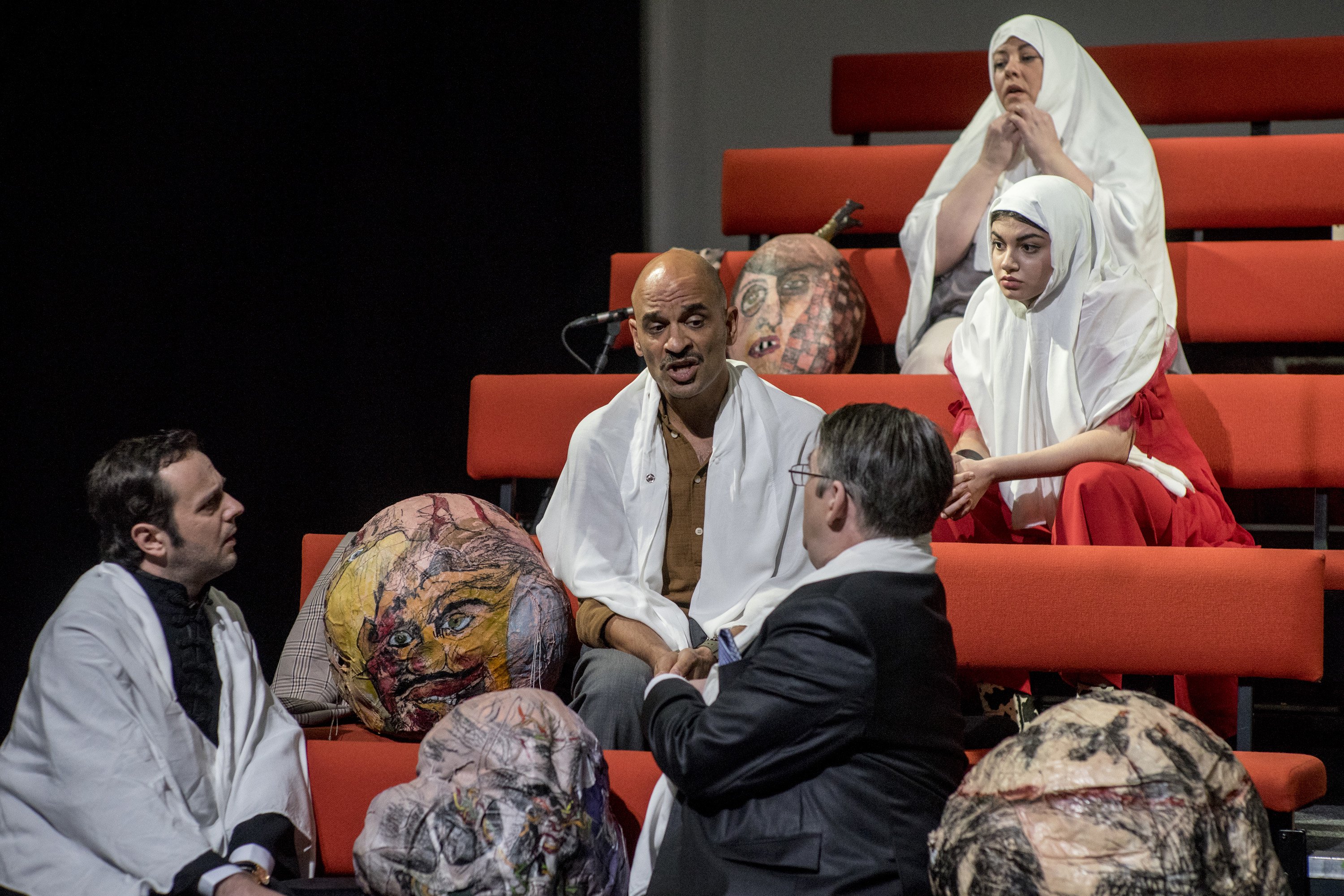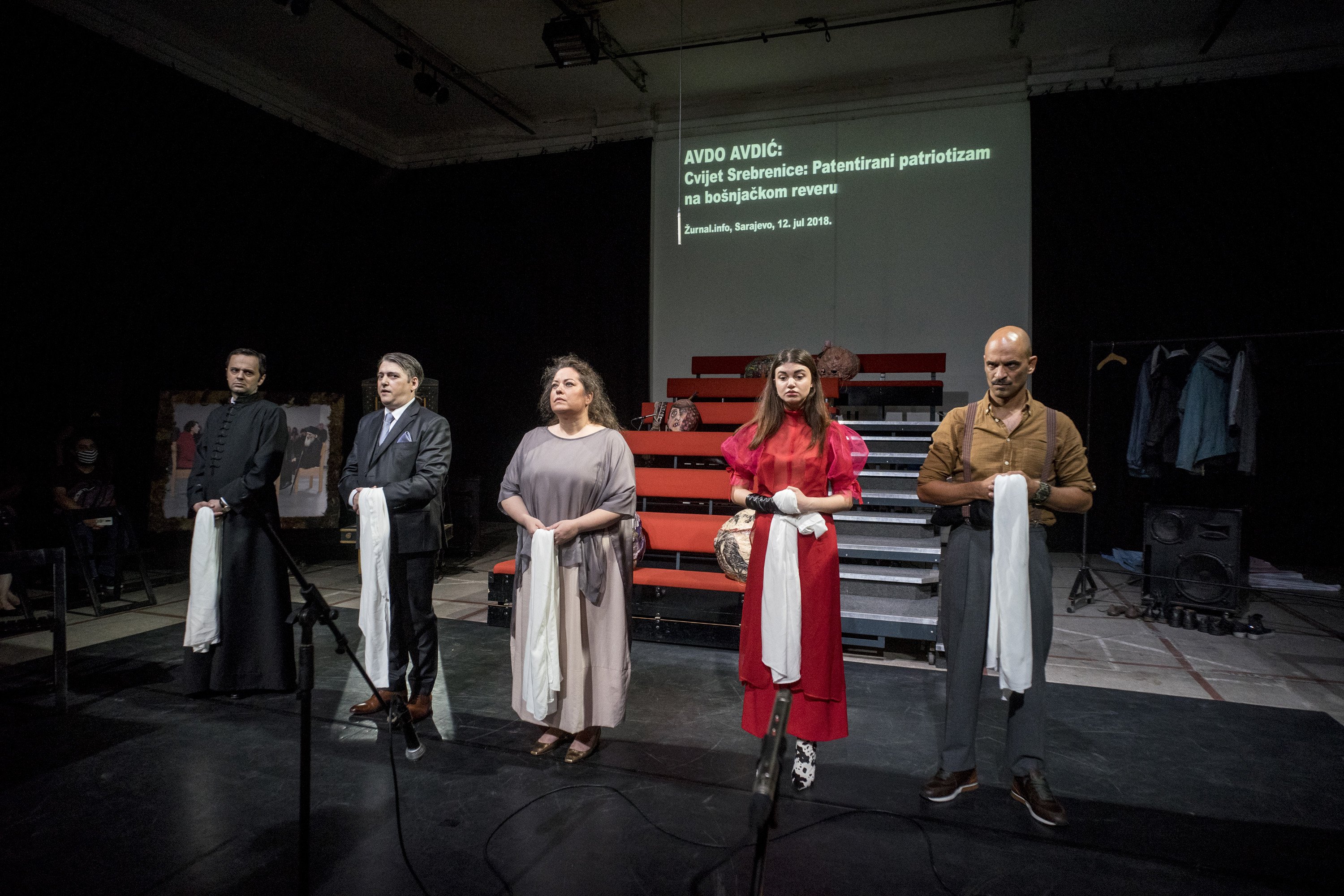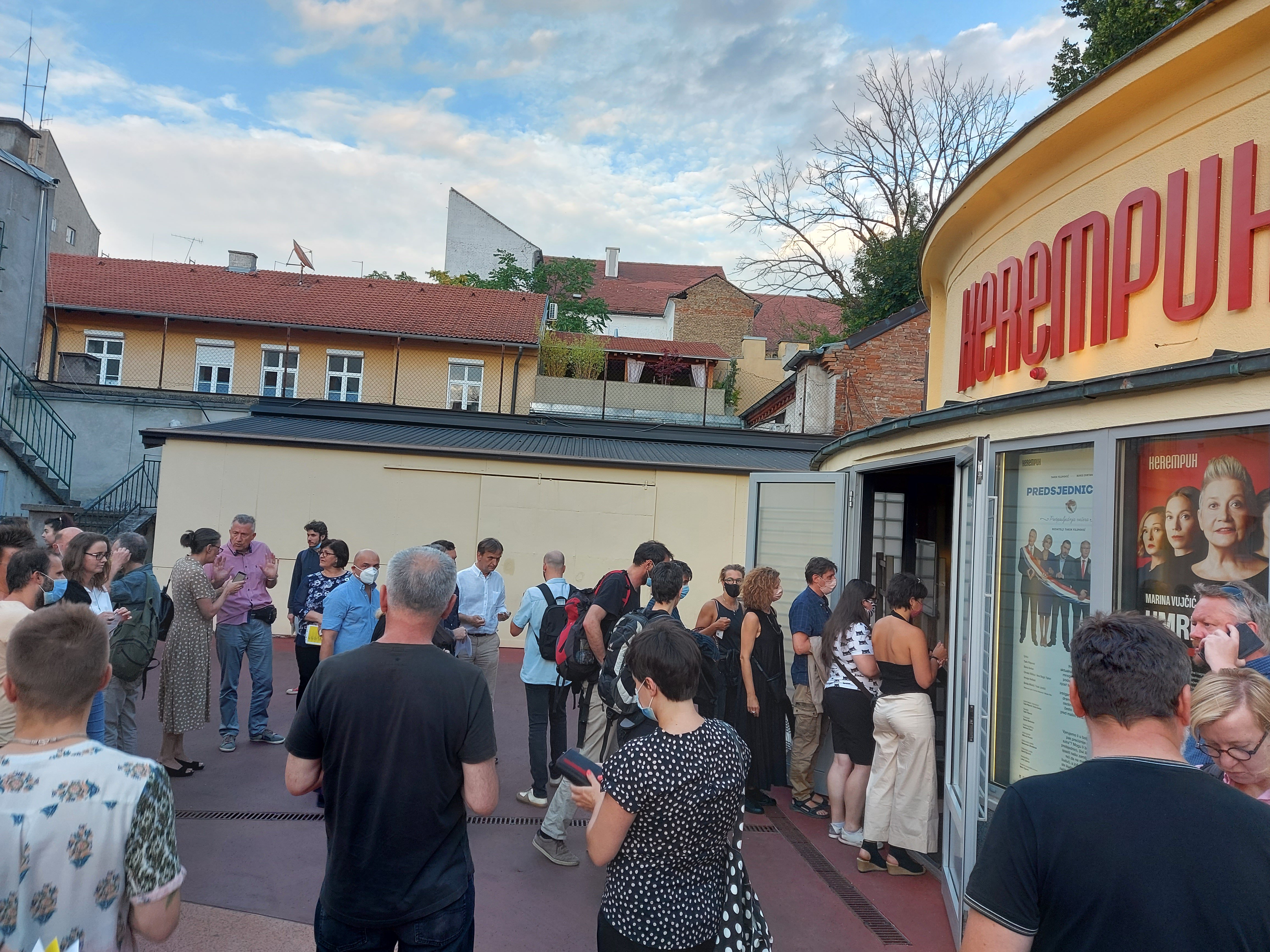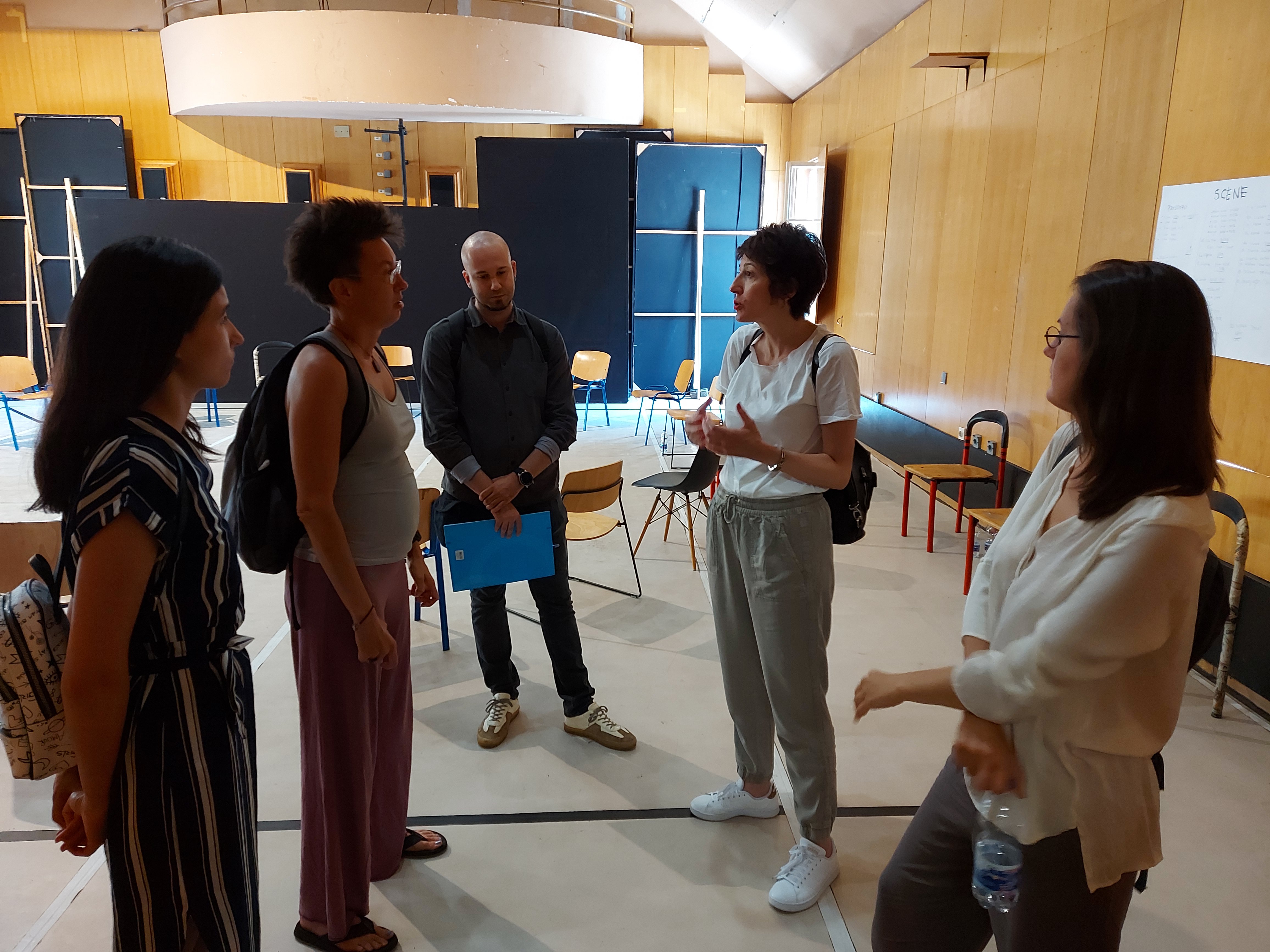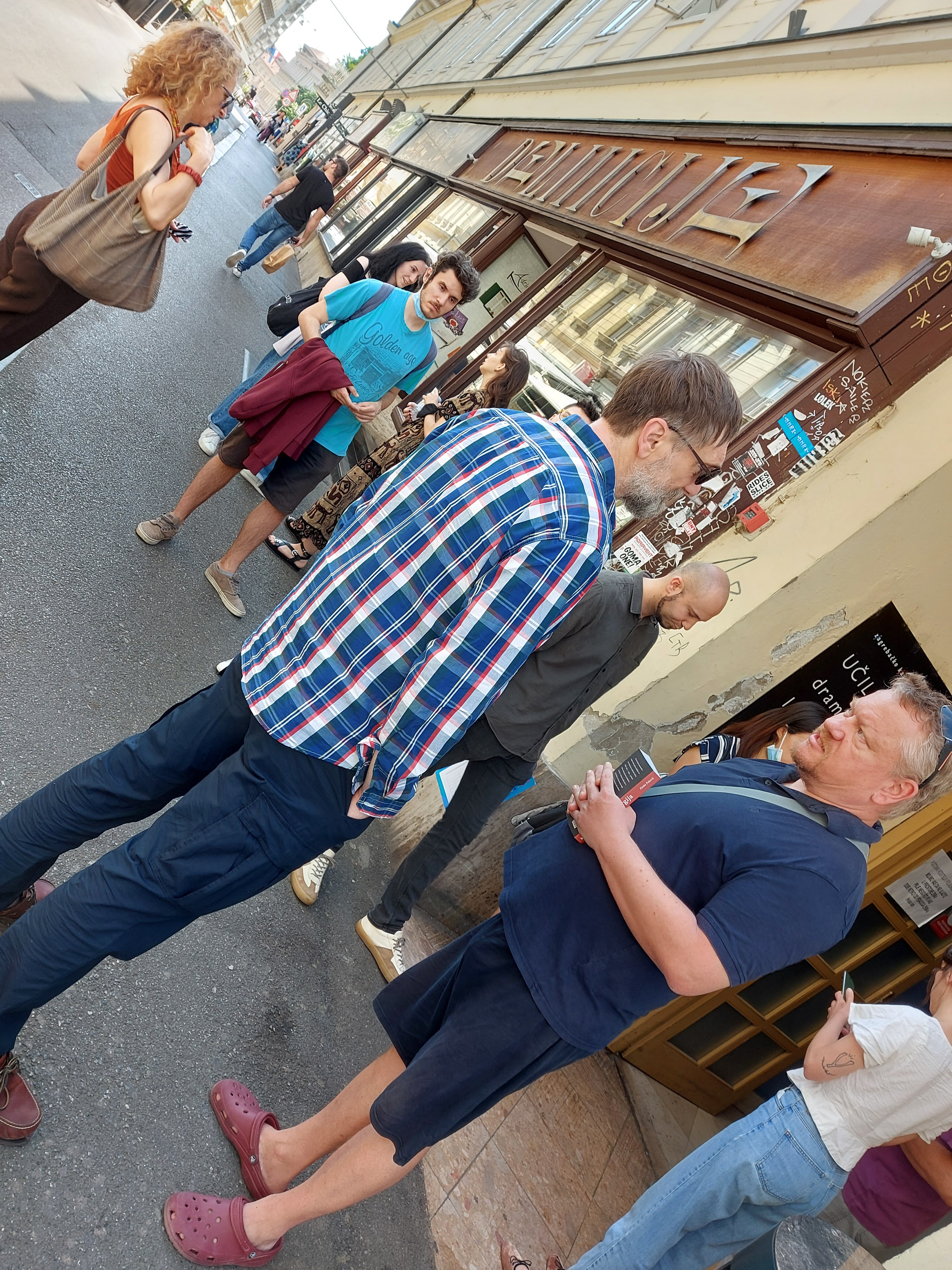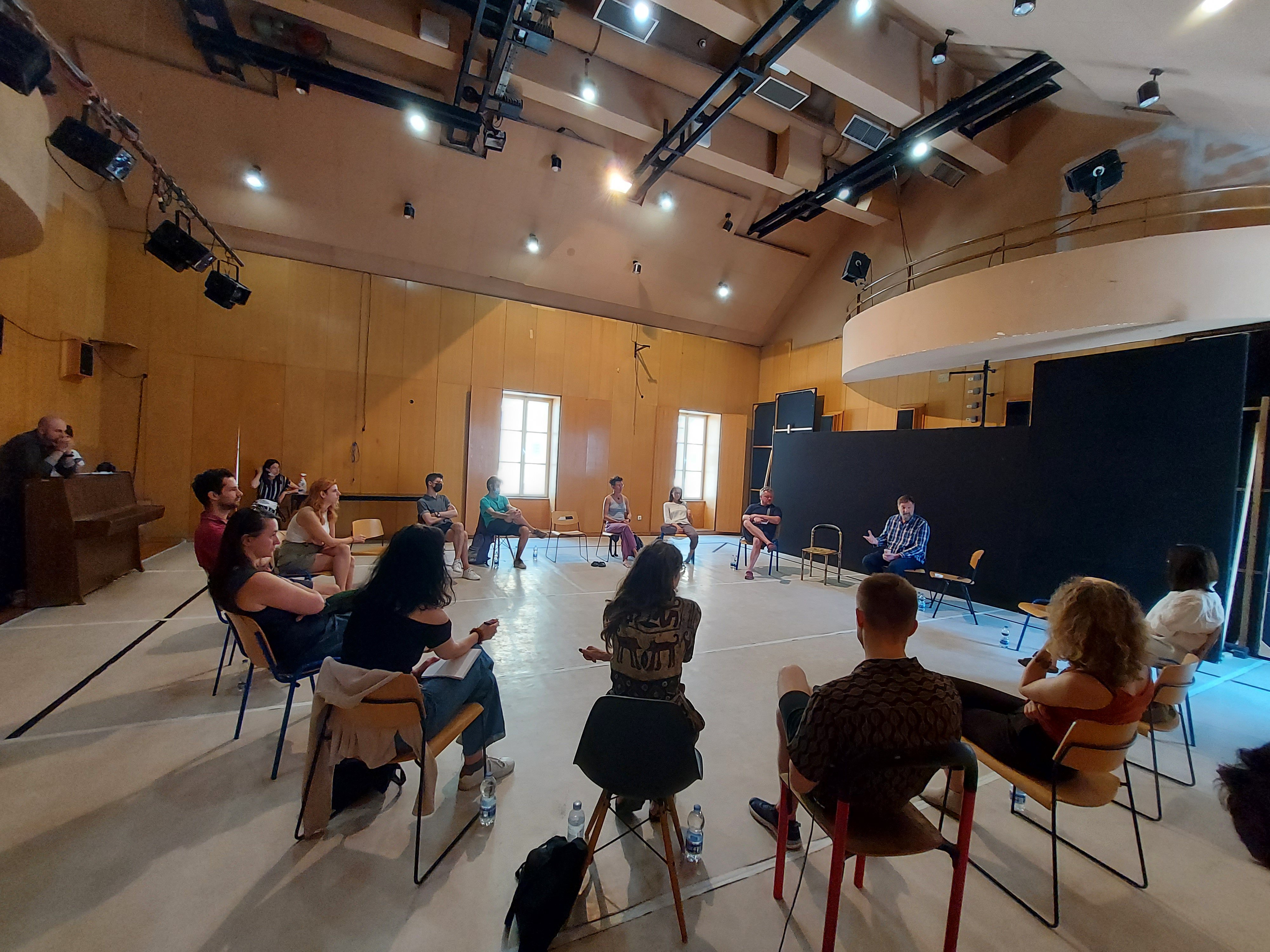Srebrenica: Drawing Lessons from the Past through Theatre Imagination
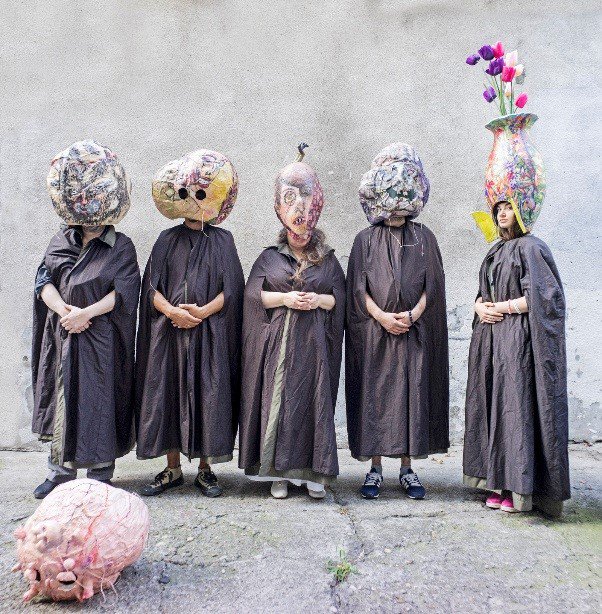
In 2020-2023, the Helsinki Committee for Human Rights in Serbia, Documenta-Center for Dealing with the Past (Croatia), Tuzla National Theatre (Bosnia and Herzegovina-BiH), and the International Partnership for Human Rights (Belgium) jointly implemented project „Srebrenica: Drawing Lessons from the Past through Theatre Imagination”. The project connected more than 840 people from four European countries in learning from history in order to draw lessons for today and the future. Among them were civic activists, journalists, intellectuals, academics, students, artists, book publishers, young people, and a large number of ordinary people.
Through a unique theatre play about the genocide in Srebrenica, inclusive discussions about the civic responsibility to preserve peace in Europe, art masterclasses for young people, and a broad media campaign, the project succeeded to 1) unpack the correlation between extreme forms of nationalism and basic rights abuses, 2) discuss shared European legacy of crimes, 3) engage youth in keeping the memory of Europe’s tragic past alive, and 4) recommend measures for increasing resilience to violent tendencies. The action also paid tribute to the victims of the Srebrenica genocide.
As such, the project contributed to understanding the impact of extremist ideologies on democracy, rule of law, and intercultural relations, thus enabling Europeans to learn from the past and join forces in building a safer future for all. With the purpose of achieving these goals, 16 events were held.
In 2020-2023, the Helsinki Committee for Human Rights in Serbia, Documenta-Center for Dealing with the Past (Croatia), Tuzla National Theatre (Bosnia and Herzegovina-BiH), and the International Partnership for Human Rights (Belgium) jointly implemented project „Srebrenica: Drawing Lessons from the Past through Theatre Imagination”. The project connected more than 840 people from four European countries in learning from history in order to draw lessons for today and the future. Among them were civic activists, journalists, intellectuals, academics, students, artists, book publishers, young people, and a large number of ordinary people
Through a unique theatre play about the genocide in Srebrenica, inclusive discussions about the civic responsibility to preserve peace in Europe, art masterclasses for young people, and a broad media campaign, the project succeeded to 1) unpack the correlation between extreme forms of nationalism and basic rights abuses, 2) discuss shared European legacy of crimes, 3) engage youth in keeping the memory of Europe’s tragic past alive, and 4) recommend measures for increasing resilience to violent tendencies. The action also paid tribute to the victims of the Srebrenica genocide. As such, the project contributed to understanding the impact of extremist ideologies on democracy, rule of law, and intercultural relations, thus enabling Europeans to learn from the past and join forces in building a safer future for all.
With the purpose of achieving these goals, 16 events were held. For more details, see the document attached at the end of the page.
